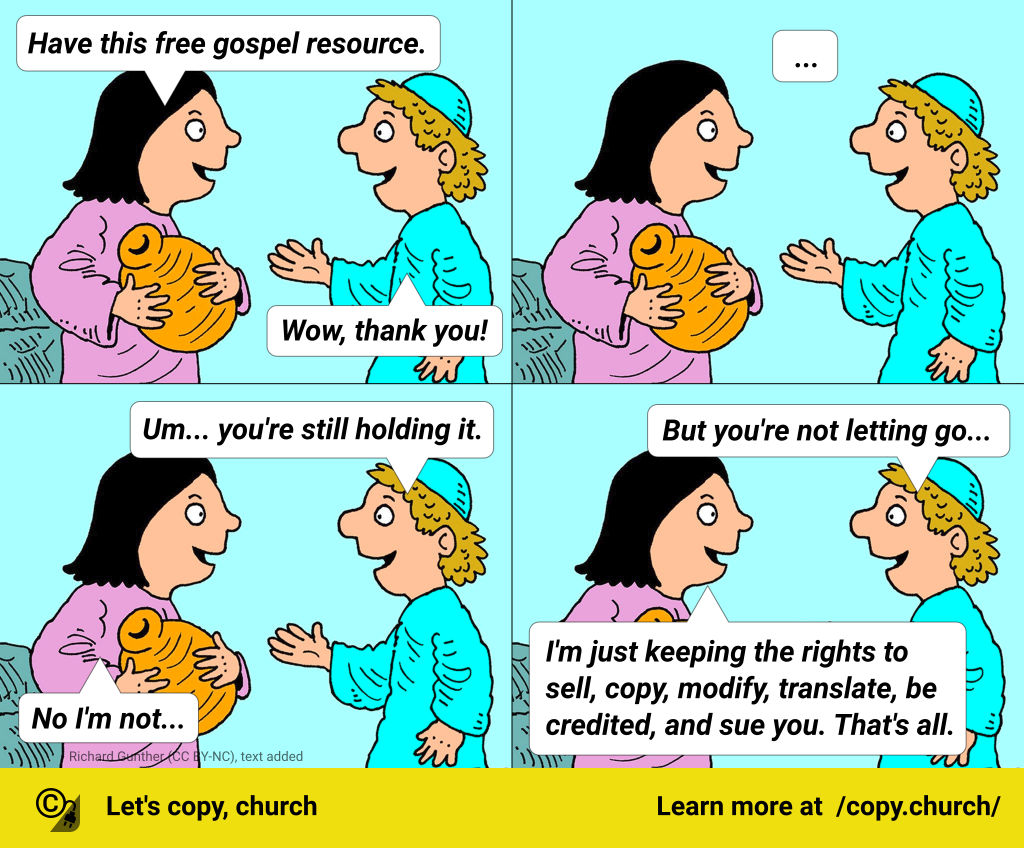Why public domain?
In the legal world, the "public domain" is where truly free works live. Works that are out of copyright and can be used without any conditions. They no longer belong to their creator but to the public.
The public domain is usually associated with old works with archaic language. But that is because almost all creators default to preserving the copyright of their works rather than giving it up, and so mostly only works that have had their copyright expire enter the public domain. But you can dedicate a resource to the public domain at any time, well before the copyright expires.
While copyright law varies by country and there are some complexities to it, dedicating resources to the public domain is the current best method of "freely giving" them. Copyright is automatic and so authors need to actively dedicate their works or they will remain restricted.
Any resource that is not dedicated to the public domain (or licensed equivalently) cannot be considered truly free, as it would still have some conditions remaining to how it can be used. Even if it is merely a condition that the author must be attributed, that will make anyone who forgets to a lawbreaker and liable to being sued.
Unless every single condition to how a resource may be used is dropped, it has not truly left the hands of the giver.
